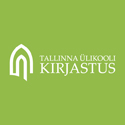Multilingual education for minority schools in Lithuania: in search of balance and compromise
Abstract
This paper examines language policy concerns in Lithuania, with a particular focus on the prominence, acquisition and use of the state language within the education of national minorities. Comparative aspects with Latvia and Estonia are shortly discussed as well. The study draws upon secondary data sources, primarily statistics provided by Lithuanian governmental institutions and policy documents. The paper highlights ongoing debates in language policy for education from the topdown mono-ethnic state approach and the opposing (or complementary) postmodernist perspective, which advocates for a context-speaker-sensitive approach to language in education. While discussing these issues, the paper aims to offer a deeper understanding of the complex dynamics between language policies in education and sociolinguistic realities by encouraging further research and considerations for more inclusive language approaches in multiethnic societies.
Keywords: Bilingualism, language acquisition, language policy, Lithuanian, state language, minority schools.
Full Text:
PDFDOI: https://doi.org/10.22601/PET.2023.08.05
Refbacks
- There are currently no refbacks.
Published by / Kirjastaja:

ISSN 2504-6616 (print/trükis)
ISSN 2504-6624 (online/võrguväljaanne)
